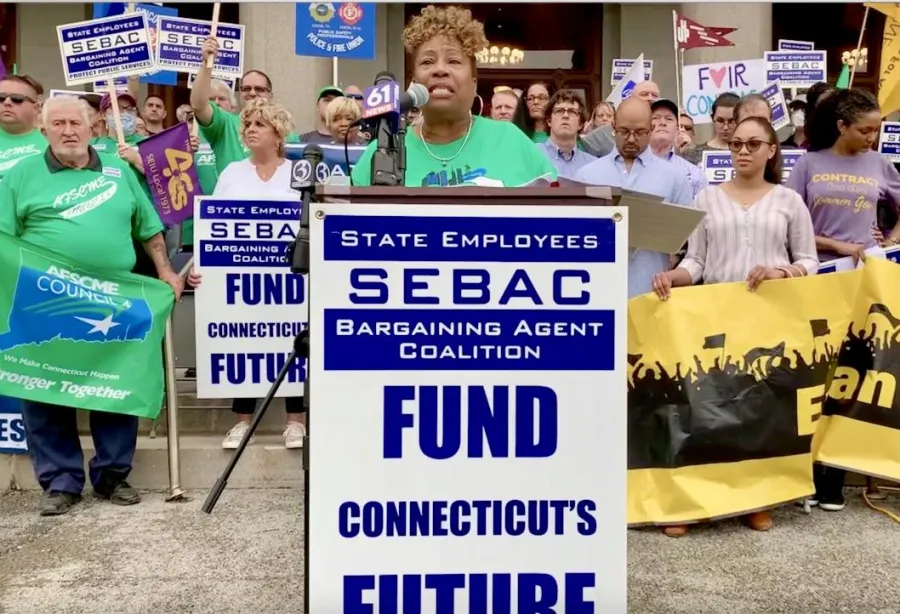SEBAC Update: All Local Bargaining Tables Reach Tentative Agreements

All 35 Local Bargaining Tables Reach Tentative Agreements;
Next Step: Ratification Votes
March 8, 2022--After over a year of negotiations with the Lamont Administration at both the coalition and local union levels, – including “outside employers” like the Judicial Branch, Higher Ed, Criminal Justice and the Public Defenders – local unions at all 35 bargaining tables in the State Employee Bargaining Agent Coalition (SEBAC) have reached tentative agreements that will proudly be reported to members in their entirety.
These strong agreements have only been made possible through the tireless efforts of the negotiating team members at each local table and the unbreakable solidarity that held our 15 unions together throughout intense bargaining.
As we enter the next stage of securing fair and honorable contracts for all 43,000 SEBAC members, you will learn the details of your union’s negotiated contract, including provisions important to each table, as well as the completely voluntary PrudentRx program that will save members who are on specialty drugs hundreds or even thousands of dollars every year.
- Click here for the SEBAC 2022 Contract Toolkit
- Click here for the SEBAC website
COALITION BARGAINING PROGRESSED BUT LOCAL TABLES STILL NEGOTIATING
February 23, 2022--Throughout the past several months, SEBAC union leaders have been working with the Lamont Administration to reach an agreement on a set of wage and step guidelines to assist local tables. This does not mean that we have a deal, however. Since these guidelines are not set in stone, we will be waiting to make an announcement on the specifics until we are confident that each local table will be able to reach agreement. At that time, these guidelines will be cemented into a tentative agreement.
Each local table has continued to work on significant issues that must be addressed before a deal is reached. The Lamont Administration must offer honorable contracts to each and every table that recognizes the importance of public services to our State - services that our communities have relied on more than ever before.
- Click here for the SEBAC website.
